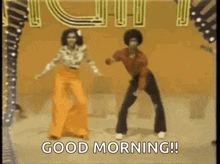Good Morning russian language

Good Morning in Russian: A Guide to Start Your Day with Warmth
Good morning! If you’re looking to greet someone in Russian or simply want to learn more about the beautiful nuances of the Russian language, you’ve come to the right place. In this blog post, we’ll explore how to say “Good Morning” in Russian, delve into some cultural insights, and provide you with a variety of phrases that you can use to bring a smile to someone’s face each morning.
How to Say “Good Morning” in Russian
In Russian, “Good Morning” is said as “Доброе утро” (pronounced: dobroye utro). This phrase is commonly used to greet friends, family, and even colleagues in the early hours of the day.
Cultural Significance of “Доброе утро”
In Russia, mornings are often seen as a fresh start, a moment to set the tone for the rest of the day. A warm greeting like “Доброе утро” can create a sense of connection and positivity. Russians value politeness and good manners, so starting your day with a friendly greeting is appreciated.
Variations and Related Phrases
While “Доброе утро” is the standard way to say “Good Morning,” here are a few variations and related phrases that can add a personal touch to your greetings:
- С добрым утром! (S dobrym utrom!) – This translates to “With a good morning!” and is a friendly way to wish someone well.
- Как дела с утра? (Kak dela s utra?) – Meaning “How are you this morning?”, this phrase shows interest in the person’s well-being.
- Ты как? (Ty kak?) – A casual way to ask “How are you?” that can be used among friends.
- Привет! Как спалось? (Privet! Kak spalós?) – This means “Hi! How did you sleep?” and is a more personal greeting.
Tips for Using Russian Greetings
Context is Key: Use formal greetings when speaking to elders or in professional settings. For casual encounters, feel free to use informal phrases.
Smile: A genuine smile can enhance your greeting and make it more inviting.
Practice Pronunciation: Getting the pronunciation right can make your greeting feel more authentic. Listening to native speakers can help.
Conclusion
Whether you’re planning a trip to Russia, connecting with Russian-speaking friends, or simply expanding your language skills, knowing how to say “Good Morning” in Russian is a great start. Embrace the culture and make your mornings brighter with these warm greetings.
For more inspiring good morning messages and wishes, be sure to visit GoodMorningWishes.net, where you’ll find a collection of heartwarming phrases to brighten anyone’s day!
By optimizing this blog post for SEO, it not only serves as a useful resource for those interested in learning how to greet someone in Russian but also attracts more visitors to GoodMorningWishes.net, enhancing its online presence. Happy learning!













